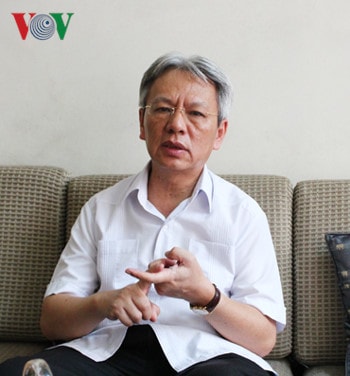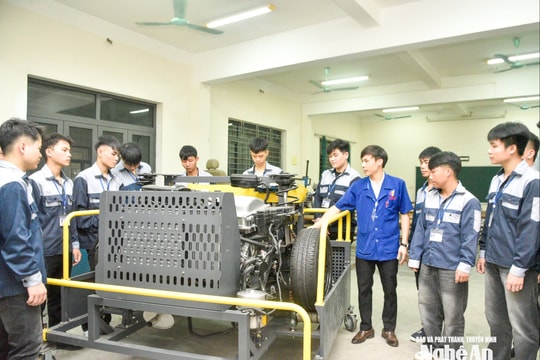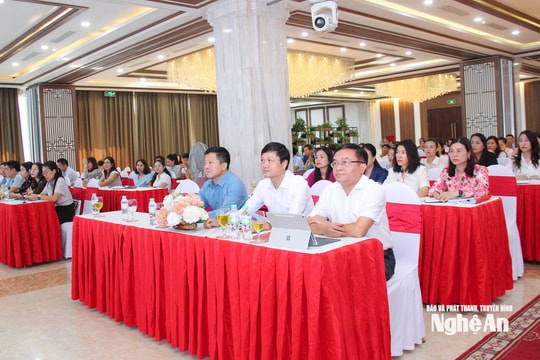A constructive government does not act for the people but helps them pursue happiness.
Mr. Nguyen Si Dung believes that a development-oriented government does not act on behalf of the people, but creates all conditions for people to pursue happiness.
In the first meeting of the newly reorganized Government, Prime Minister Nguyen Xuan Phuc affirmed to build a development-oriented Government, an action-oriented Government, a serving Government, and an honest Government. A development-oriented Government is considered a task set out in the new situation. What is a development-oriented Government? Where should we start to build a development-oriented Government? Dr. Nguyen Si Dung, former Deputy Head of the National Assembly Office, discussed this issue with the press.
 |
| Dr. Nguyen Si Dung, former Deputy Head of the National Assembly Office. |
The government creates development, not replaces the people.
PV:In recent Government meetings, Prime Minister Nguyen Xuan Phuc has always emphasized the building of a developmental government, an action-oriented government, a serving government, and an honest government. In your opinion, how should the concept of “constructive government” be understood?
Dr. Nguyen Si Dung: Conceptually, a developmental government is a government that creates all conditions for development to happen. A developmental government does not do things for the people, but creates an institutional framework and all other necessary conditions so that each person can do business easily, can rise up to realize their dreams and ambitions. When people have the conditions to pursue happiness, rise up to realize all their dreams, as well as have the ability to master their lives, develop the economy, and have the ability to build a good life, that is development. That development is the most important, the most substantial and the most sustainable.
It is important that the Government builds the necessary institutional frameworks to make it easier for people to do business. The most important thing here is that freedom of business and freedom of property must be guaranteed; transparency must be enhanced; contractual commitments must be respected and the State must ensure that respect; disputes must be resolved quickly and effectively; and fair competition in economic activities, as well as in all other activities, must be guaranteed.
Another important condition is that the apparatus must be efficient, help to create the above and the apparatus itself must not be corrupt.
A developmental government must be a government that abides by the rule of law. The government must be bound by the law first, not the people. The people can do what the law does not prohibit, but government agencies can only do what the law permits. And there are legal principles that cannot be overcome by the government.
From project development, policy formulation to law enforcement, officials must ensure that the law allows them to do so. Before taking action, all public agencies and public officials must point out the law that allows them to act. Applying legal sanctions that are heavy on citizens but light on officials is unacceptable.
Another condition is that a developmental government is a government whose decisions, policies and laws must be transparent and accountable to the people. These are the minimum conditions to become a developmental government.
PV:As the head of the Government said, "the longest road in Vietnam is from words to actions." Talking well but not being able to do or not being able to do is mainly due to the quality of the administrative civil servants - the people who design and implement policies for the country, don't you think?
Dr. Nguyen Si Dung:It is a fact that it is easier said than done. To reduce the gap between words and actions, we need to first talk less and only say things that can be done.
In addition, establishing a system of responsibility for words is also very important. An official who makes a promise but does not keep it will be responsible before the representative body of the people and before the people.
Building an effective public administration is also important. Ultimately, it is the job of politicians to set policies, but implementing policies is the job of the public administration.
Group interests always exist.
PV:Some people say that, whether it is collective responsibility or individual responsibility, it is ultimately the fault of the policy system that creates loopholes for group interests to dominate. What is your comment on this opinion?
Dr. Nguyen Si Dung:First of all, group interests exist forever, there is no place where they do not exist. The problem is that we cannot sacrifice the interests of the nation or of a larger group for a smaller group, a group with special privileges.
For example, the Vietnam Chamber of Commerce and Industry, representing businesses, always “fights” for low minimum wages; the trade union, representing workers, always “fights” for high minimum wages. The problem here is not to eliminate group interests, but to harmonize the interests of these two groups. Finding an institutional framework for them to negotiate and bargain with each other to ensure harmony of interests is important.
Group interests in a negative sense mean sacrificing the interests of the nation, the people, and the majority for the benefit of a small group of privileged people. To overcome group interests, the decision-making process must be publicized, input information must be objective and must be adjusted. Second, all decisions must be accountable and must be explained. If they cannot be explained, they must be held responsible. Third, all activities that impact policy must be adjusted and publicized, not "colluded behind closed doors".
According to VOV



.jpg)




